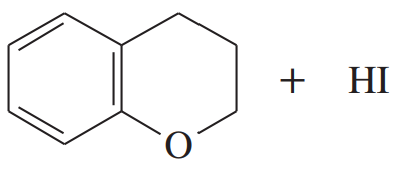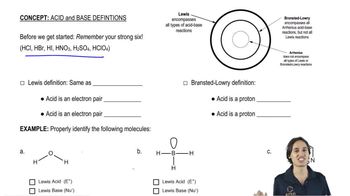Propose a mechanism for each of the following reactions:
a.

 Verified step by step guidance
Verified step by step guidance Verified video answer for a similar problem:
Verified video answer for a similar problem:



 4:22m
4:22mMaster How to predict the products of Ether Cleavage. with a bite sized video explanation from Johnny
Start learning